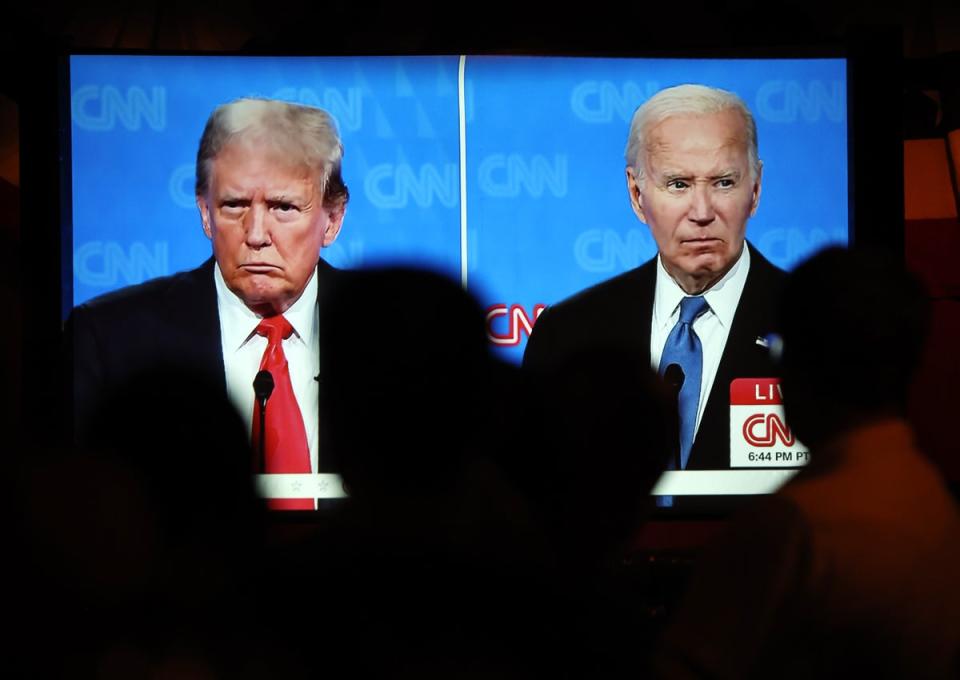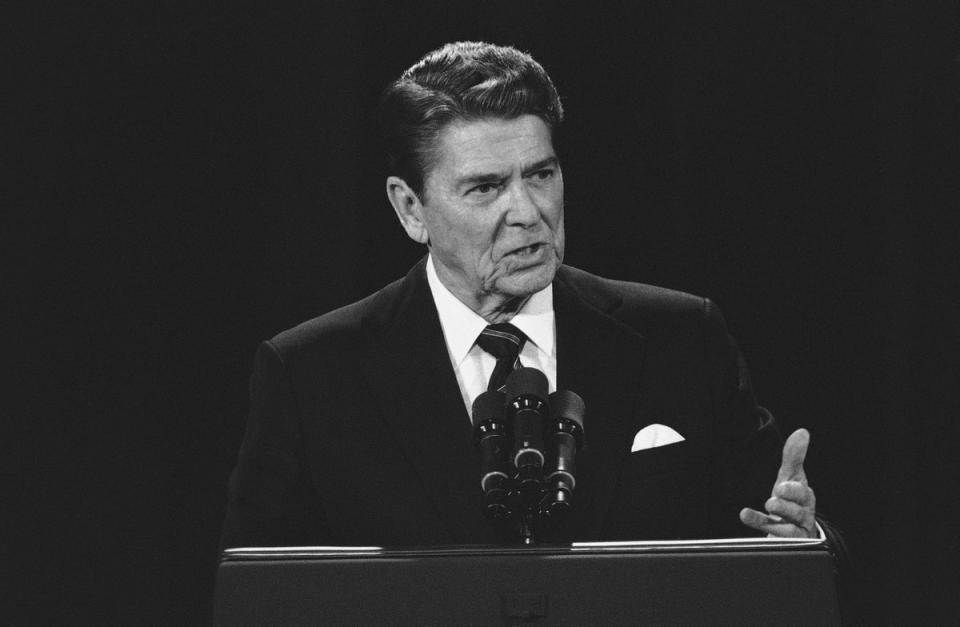Do presidential debates really matter? What history says about voters forgiving Biden’s rough night
Nearly everyone agrees — including President Joe Biden — that he botched the first presidential debate of the 2024 general election, but the question remains as to how much a debate performance matters when it comes to reclaiming the White House.
History shows the 81-year-old Democrat could still recover.
Pew Research shows that 63 percent of voters said the presidential debates were “very or somewhat helpful” in deciding which candidate to back.
But it’s not clear when voters make up their minds, potentially leaving some room for recovery. In 2016, only 10 percent of voters said they had definitively made up their minds “during or just after” the debates while 11 percent said they would decide on Election Day or the days or weeks leading up to it, according to Pew.
The “panic” that Democrats experienced after watching the president stumble on his words in Thursday’s CNN debate is not a first. If what’s past is prologue, Biden’s “dreadful” debate performance likely didn’t seal his fate in the November election.
Biden’s former boss Barack Obama had a lackluster performance in 2012 against Republican Senator Mitt Romney. The Democrat was accused of going through the motions as Romney pressed him on his first-term record.
Still, he persevered in his re-election bid.
Obama himself acknowledged his 2012 flop on Friday, giving a word of encouragement to his former veep on X: “Bad debate nights happen. Trust me, I know.”
But before there was Obama’s debate flop, there was George W Bush’s.
In his 2004 first presidential debate against John Kerry, then-President Bush appeared “annoyed and irritated,” NBC News reported at the time, often scowling when Kerry made jabs about his record.
A contemporaneous survey from Pew Research showed that twice as many debate viewers thought Kerry prevailed. Still, Bush reclaimed the White House that year.
Sara Fagen, who worked on Bush’s 2004 re-election campaign, told NBC News about the curse of the incumbents: “Usually incumbents in some ways have the harder job because they’re defending the sitting record.”
Alan Schroeder, the author of a book on presidential debates, also mentioned this phenomenon to the outlet: “Once the president is in the office, and especially after four years in the office, they are in a sort of protected bubble where they don’t hear much conflicting information.”
An incumbent candidate requires “a sort of transition almost back to being a normal citizen,” he said.

Ronald Reagan was another example of this.
Up against Democrat Walter Mondale in the first 1984 presidential debate, critics called Reagan’s responses rambling and said he appeared tired.
After an abysmal first showing, Reagan acknowledged his faltering and came to the same conclusion as modern-day strategists, suggesting that presidential debates were more difficult for the incumbent.
He told reporters after the initial debate that unless the incumbent “drops a bomb on the other fellow, [he] is going to automatically be tagged as not having done well because he didn’t destroy somebody.” The then-president added that the incumbent is at a disadvantage “because he’s under attack.”
Reagan continued: “I look back now at the times in debates when I wasn’t the incumbent and never realized how easy it was to be on the other side.”
In the second debate, Reagan recovered.
Like Biden, the then-73-year-old president was faced with voter concerns over age. At the time, Reagan was the oldest president in US history — until Biden claimed the title in 2020.

He endearingly joked about his age at the second debate: “I want you to know that I will not make age an issue of this campaign. I am not going to exploit, for political purposes, my opponent’s youth and inexperience.”
That year, Reagan took back the White House, sweeping 49 states.
In the day since his disastrous performance, Biden seems to have already made somewhat of a recovery.
Speaking at a North Carolina rally, the president acknowledged his debate blunders: “I know I’m not a young man, to state the obvious.”
As if channeling Reagan, Biden acknowledged his age: “I don’t walk as easy as I used to. I don’t speak as well as I used to. I don’t debate as well as I used to.” He then cut into Trump: “ I know how to tell the truth. I know right from wrong. I know how to do this job.”


